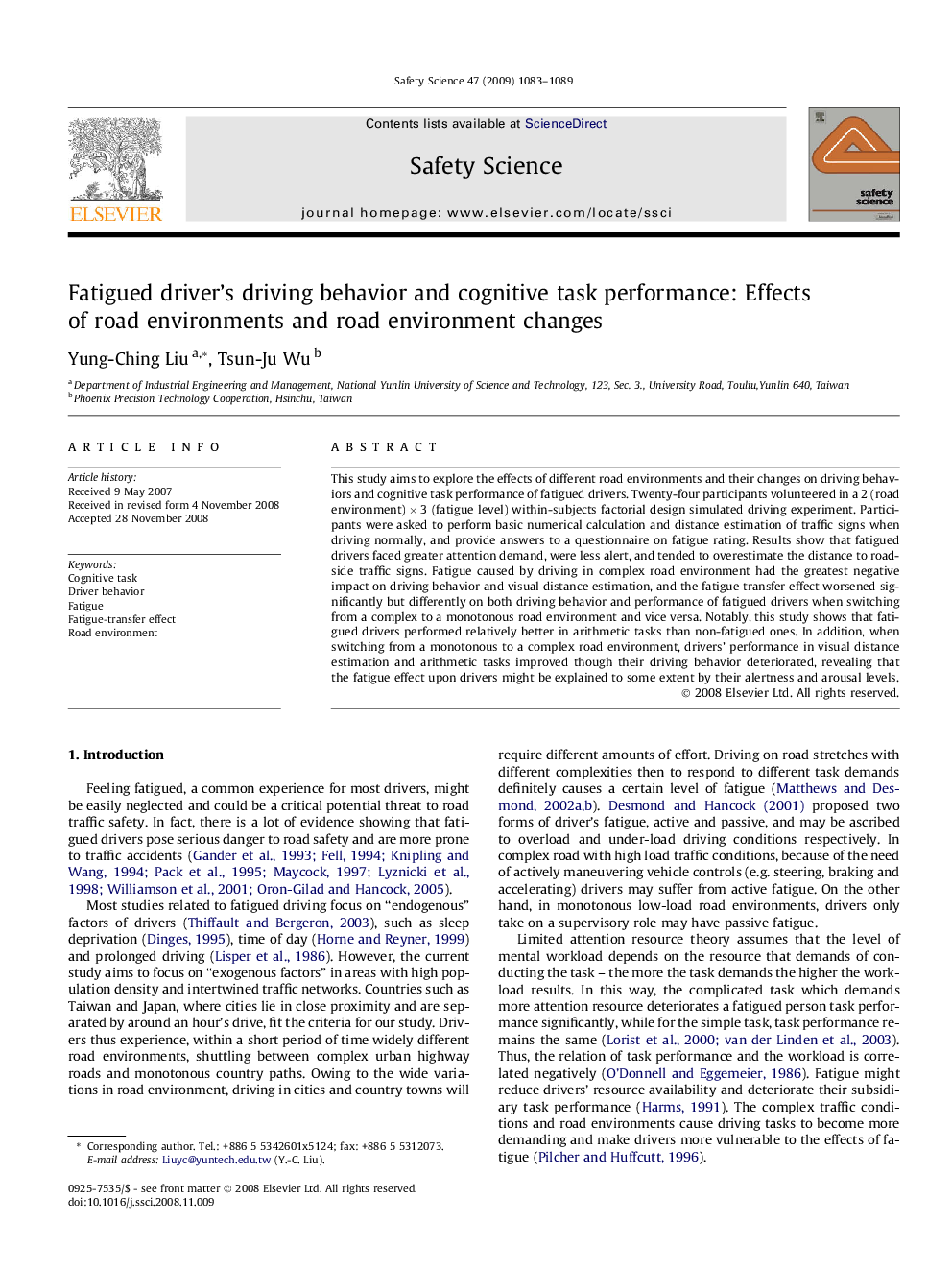| Article ID | Journal | Published Year | Pages | File Type |
|---|---|---|---|---|
| 589982 | Safety Science | 2009 | 7 Pages |
This study aims to explore the effects of different road environments and their changes on driving behaviors and cognitive task performance of fatigued drivers. Twenty-four participants volunteered in a 2 (road environment) × 3 (fatigue level) within-subjects factorial design simulated driving experiment. Participants were asked to perform basic numerical calculation and distance estimation of traffic signs when driving normally, and provide answers to a questionnaire on fatigue rating. Results show that fatigued drivers faced greater attention demand, were less alert, and tended to overestimate the distance to roadside traffic signs. Fatigue caused by driving in complex road environment had the greatest negative impact on driving behavior and visual distance estimation, and the fatigue transfer effect worsened significantly but differently on both driving behavior and performance of fatigued drivers when switching from a complex to a monotonous road environment and vice versa. Notably, this study shows that fatigued drivers performed relatively better in arithmetic tasks than non-fatigued ones. In addition, when switching from a monotonous to a complex road environment, drivers’ performance in visual distance estimation and arithmetic tasks improved though their driving behavior deteriorated, revealing that the fatigue effect upon drivers might be explained to some extent by their alertness and arousal levels.
